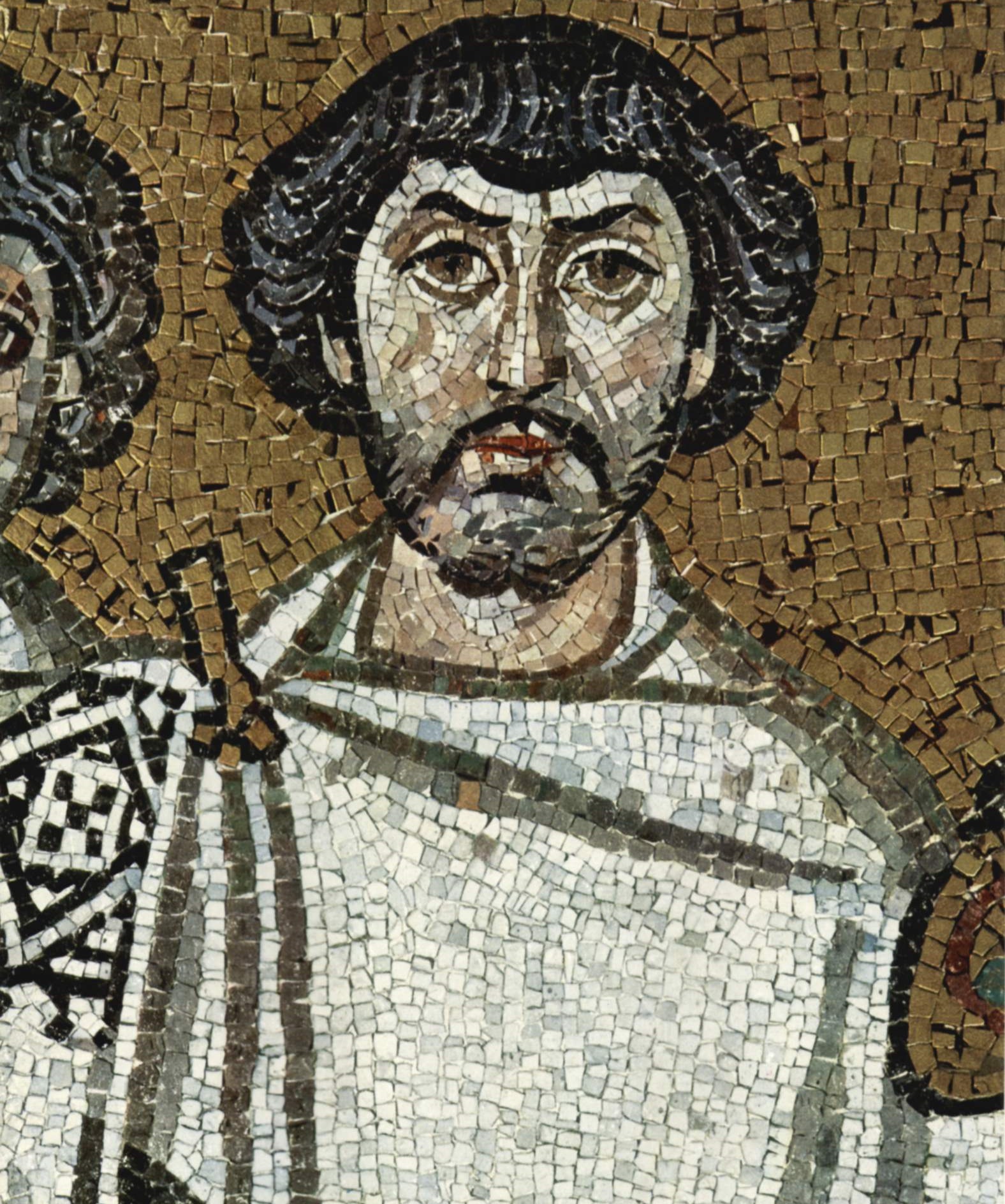The Byzantine general Flavius Belisarius looked to be Emperor Justinian's best hope for reaffirming and expanding the waning political power of his empire. What had once been the Roman domination of the known world was now but the eastern quadrant, tying together Egypt, Judea, Syria, Asia Minor, and Greece with Constantinople as its century-old capital. Belisarius had been instrumental as a young commander putting down the Nika riots that had turned from unruly racing-spectators to a force that nearly overthrew Justinian. As a reward, and a move for the expansion-minded Justinian, Belisarius was sent on an expedition to put down the usurper Gelimer who had taken over the Vandal kingdom of Hilderic.
Initially, the expedition went well. Gelimer marched to meet the invading Belisarius at Ad Decimum (the marker ten miles south of Carthage). The attack on the Byzantines nearly overwhelmed Belisarius until Gelimer saw that his brother Ammatas's troops were sparsely arranged. By the time Gelimer came to reinforce him (disengaging from a winning fight along the main road), Ammatas had been killed, and Gelimer stopped fighting to bury him. The battle became a rout, and Belisarius took Carthage while the grieving Gelimer fled.
Twelve weeks later, Gelimer formed up with an army of another brother, Tzazon, and marched on Carthage, which Belisarius had been fortifying. Gelimer used money as an axillary weapon, offering a bounty to locals for Roman heads and seeking to bribe Belisarius' Hun mercenaries away from him. When time for battle came, Belisarius knew he could not trust such craft to a long siege and marched to meet Gelimer in the field.
They came together at Tricamarum, 30 miles from Carthage, Belisarius outnumbered more than three-to-one. Roman cavalry led by Belisarius charged against the Vandal infantry lines, hoping that they would break, but the death of Belisarius caused them to falter. Gelimer solidified his troops and charged the infantry on foot, overwhelming the Romans. Finding the body of the fallen Belisarius, Gelimer placed his head upon a pike as a standard of victory. When word reached Justinian of the defeat of the expedition, his dreams of extension of his rule shattered.
Gelimer maintained rule over the western Mediterranean, the Ostrogoths halted Byzantine attempts at seizing Italy and the seat of the Pope, and the end of the Byzantines came as Zabergan, Khan of the Bulgars, crossed the Danube in 559 and stormed Constantinople in 562. The Roman Empire officially ended, and the age of Germanic rule settled over Europe. Great leaders like Pepin and Charlemagne would unite tribes into strong kingdoms, few more famous than the Vandal king Golomor stopping Caliphate expansion west of Egypt, causing them to turn more northward through the Black Sea.
While Europe remained a significant corner of the world, it would rarely take the central position of the Muslim Middle East. The Caliph and other leaders controlled trade, built great libraries, and furthered science and mathematics. With the fall of the Khans and invention of modern banking, centers in Baghdad, Alexandria, and Timbuktu would become massive metropolitan cities, eventually dwarfing the ancient supremacy of Rome with its estimated population of one million. Economics would lead to imperialism, spawning a rivalry between Islamic states in exploration and controlling resources from colonies in the New World, ports of call and spheres of influence in the Far East, and dependent satellites in nearby, though barbaric, Europe.
--
In reality, Tzazo was killed in the cavalry charges. Gelimer again lost his nerve at the death of a brother, and his army was routed. Belisarius finished the conquest of North Africa for Justinian and then began an invasion of Italy against the Ostrogoths. He also conducted the affirmation of peace by the Persians and came out of retirement in 559 to defeat the Bulgars. With a powerful, expansive empire, Justinian set the Byzantines to rule another millennium until the fall of Constantinople in 1453 to the Ottomans after the Crusades.

Fascinating, and wondering how the future would move on from this.
ReplyDelete